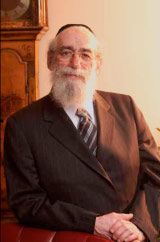Anzivino on the Disappointed Expectations Test
Ralph Anzivino has a new paper on SSRN entitled “The Disappointed Expectations Test and the Economic Loss Doctrine.” This makes a trilogy of recent articles by Ralph on different aspects of the economic loss doctrine. (The first two are here and here.) The abstract for this most recent entry is as follows:
The economic loss doctrine is a judicially created rule that determines whether contract or tort law applies when a defective product causes damage. The doctrine’s starting premise is that contract law governs if the defective product causes economic loss and tort law governs when the defective product causes property damage. A common refrain is that the doctrine was created to prevent contract law from drowning in a sea of tort. However, as the rule has developed, courts have continued to expand contract coverage at the expense of tort coverage. First, when the defective product damages only itself, the courts concluded that such property damage should be resolved under contract law, not tort law. Next, when the defective product damages the system of which it was a component part, the courts concluded that such property damage should also be resolved under contract law, not tort law. Recently, another rule has begun to receive judicial acceptance that further expands the coverage of contract law at the expense of tort law. The rule is called the “disappointed expectations” test or the “reasonably foreseeable” rule. It provides that property damage that was reasonably foreseeable at the time of contracting is recoverable only under contract law, not tort law. The purpose of this Article is to examine the disappointed expectations rule and determine whether it is a positive addition to the legal landscape of the economic loss doctrine.
After surveying the development of the disappointed expectations test, which has been adopted by the Wisconsin Supreme Court, Ralph identifies several reasons why the test should be rejected. He pointedly concludes, “The rule is the most recent progression of tort law drowning in a sea of contract law.”

 Professor Jessica E. Slavin
Professor Jessica E. Slavin 